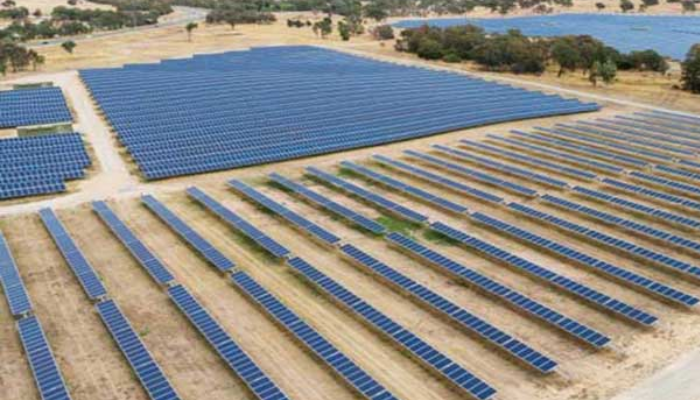Sustainable Energy for All (SEforALL), the African Climate Foundation, Bloomberg Philanthropies, ClimateWorks Foundation, and the Chinese Renewable Energy Industries Association (CREIA) have together launched the Africa Renewable Energy Manufacturing Initiative (AREMI) at Abu Dhabi Sustainability Week, UAE, with an objective step up investment and action for renewable energy development in African countries to scale up renewable energy manufacturing capabilities.
The group said that AREMI will help unleash renewable energy development of 1.2 TW, create 14 million jobs and 6.4 per cent economic growth in terms of GDP. AREMI will support the financial, technical, and socioeconomic investments needed for green transition in the resource scared continent.
Players establishing AREMI said that Africa has world’s 60% best solar resources. The continent could become a global green manufacturing hub that can have solar PV expansion to 650 GW by the middle of this century.
The new initiative will focus on capacity building, knowledge transfer, policy dialogues, and advocacy. Four programs will help in low-emission development and carbon neutrality in Africa. One, AREMI will partner with African government officials to accelerate policymaking for green manufacturing. Two, it will help scale training, employment, and career development opportunities. Three, it will help attracting green manufacturers to Africa by identifying optimal operating models and scale green capacity investment. And four, it will also incubate African green manufacturing projects and policies.
AREMI will foster greater South-South cooperation and ramp up energy capacity through global partnerships. AREMI will enhance coordination between the governments in Africa and the Global South for green energy development and heightened decarbonisation.
Report To Support
SEforALL also unveiled a new report called – Africa Renewable Energy Manufacturing: Opportunity and Advancement – which analyzes renewable energy manufacturing scenario in Africa and looks at different means to accelerate the local renewable energy industry. The report, on the sidelines of making of AREMI, also offers a roadmap to help achieve a just, equitable, and green energy transition in the continent.
The report identifies key eight countries that have medium and high potential of solar power and solar industry: Algeria, Egypt, Ghana, Morocco, Namibia, South Africa, Tanzania and Tunisia. The study also mentions the existing barriers to finance and points key policy areas for countries to act on to attract foreign investment.
Commenting on the formulation of AREMI and the report, Damilola Ogunbiyi, CEO and Special Representative of the UN Secretary-General for Sustainable Energy for All and Co-Chair of UN-Energy, stated, “Ending energy poverty, saving lives, and avoiding a greater energy crisis means investing in and scaling up sustainable and renewable development projects in Africa. That requires both public and private financing to drive renewable energy manufacturing capacity in African countries. With the Africa Renewable Energy Manufacturing Initiative, African countries will be able to shrink the energy gap, further economic growth, and enable a just and equitable energy transition.”


